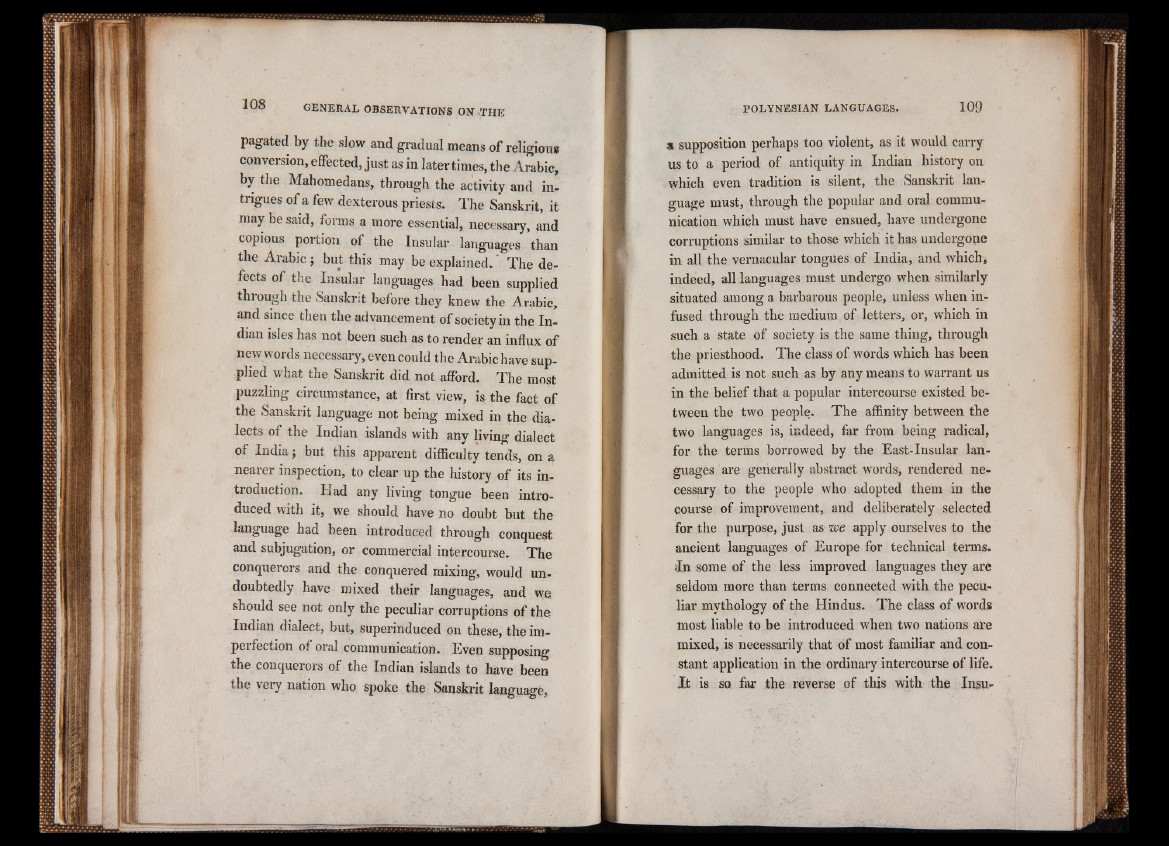
pagated by the slow and gradual means of religious
conversion, effected, just as in later times, the Arabic,
by the Mahomedans, through the activity and intrigues
of a few dexterous priests. The Sanskrit, it
may be said, forms a more essential, necessary, and
copious portion of the Insular languages than
the Arabic; but this may be explained.' The defects
of the Insular languages had been supplied
through the Sanskrit before they knew the Arabic,
and since then the advancement of society in the Indian
isles has not been such as to render an influx of
new words necessary, even could the Arabic have supplied
what the Sanskrit did not afford. The most
puzzling circumstance, at first view, is the fact of
the Sanskrit language not being mixed in the dialects
of the Indian islands with any living dialect
of India; but this apparent difficulty tends, on a
nearer inspection, to clear up the history of its introduction.
Had any living tongue been introduced
with it, we should have no doubt but the
language had been introduced through conquest
and subjugation, or commercial intercourse. The
conquerors and the conquered mixing, would undoubtedly
have mixed their languages, and we.
should see not only the peculiar corruptions of the
Indian dialect, but, superinduced on these, the imperfection
of oral communication. Even supposing
the conquerors of the Indian islands to have been
the very nation who spoke the Sanskrit language,
a supposition perhaps too violent, as it would carry
us to a period of antiquity in Indian history on
which even tradition is silent, the Sanskrit language
must, through the popular and oral communication
which must have ensued, have undergone
corruptions similar to those which it has undergone
in all the vernacular tongues of India, and which,
indeed, all languages must undergo when similarly
situated among a barbarous people, unless when infused
through the medium of letters, or, which in
such a state of society is the same thing, through
the priesthood. The class of words which has been
admitted is not such as by any means to warrant us
in the belief that a popular intercourse existed between
the two people. The affinity between the
two languages is, indeed, far from being radical,
for the terms borrowed by the East-Insular languages
are generally abstract words, rendered necessary
to the people who adopted them in the
course of improvement, and deliberately selected
for the purpose, just as we apply ourselves to the
ancient languages of Europe for technical terms.
¡In some of the less improved languages they are
seldom more than terms connected with the peculiar
mythology of the Hindus. The class of words
most liable to be introduced when two nations ate
mixed, is necessarily that of most familiar and constant
application in the ordinary intercourse of life.
It is so far the reverse of this with the Insu